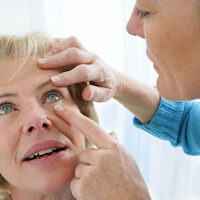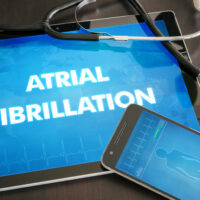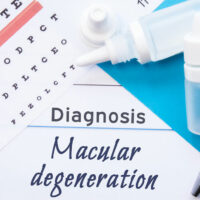19 warning signs of kidney cancer to be aware of

Detecting kidney cancer, also known as renal cancer, can be challenging, but it is not impossible. It is important to know about the myriad signs and symptoms associated with kidney cancer to increase awareness and ensure early diagnosis. By understanding these indicators and their potential causes, one can take proactive steps to protect their health. It is also vital to understand the importance of regular checkups to avoid any scares.
19 warning signs of kidney cancer
Hematuria: Blood in the urine
Hematuria, characterized by blood in the urine, is a hallmark symptom of kidney cancer. The presence of blood in the urine can range from a faint pink tinge to a more noticeable red or brown hue, making it an alarming sign for many. Although hematuria can also signal less severe conditions like urinary tract infections or kidney stones, it should always be investigated by a healthcare professional.
Pain or discomfort in the side or back
Persistent pain or discomfort in the side or lower back without any injury is a common symptom of kidney cancer. This sensation varies from a dull, nagging ache to sharp, intermittent pain. It emerges as the tumor enlarges and exerts pressure on surrounding nerves or organs.
Unexplained loss of body mass
A sudden and unexplained loss of body mass is a concerning symptom often associated with advanced kidney cancer. The presence of a tumor can disrupt the body’s metabolic processes, leading to unintended reduction in body mass. This is a subtle yet critical sign, as it may occur even when the individual’s appetite remains steady or increases.
Fatigue and weakness
Kidney cancer can cause persistent fatigue and weakness. Multiple factors contribute to this overwhelming sense of tiredness. Anemia, a condition marked by a shortage of red blood cells, is another common consequence of kidney cancer, intensifying one’s feelings of weakness and exhaustion.
Fever and night sweats
In some cases, kidney cancer may induce fever and night sweats. These symptoms usually arise due to infections or inflammation associated with the tumor. While infections can cause similar symptoms, persistent or recurrent fevers and night sweats warrant a healthcare evaluation.
Edema: Swelling in the legs and ankles
Edema, or swelling, can occur in the legs and ankles due to kidney cancer. The tumor’s presence may disrupt normal blood and lymphatic fluid flow, resulting in swelling. This symptom can cause discomfort and should be addressed by a healthcare provider.
Hypertension: High blood pressure
Kidney cancer can elevate blood pressure (hypertension) by producing an excess of erythropoietin or compressing the renal arteries. Hypertension can be an indicator of kidney issues and should prompt further investigation.
Anemia
Anemia, characterized by a deficiency of red blood cells, can be caused by kidney cancer. It can lead to fatigue, weakness, and pale skin. Identifying the underlying cause of anemia is crucial, as it may be one of the early signs of kidney cancer. However, anemia might also indicate several other health concerns and, therefore, needs to be appropriately diagnosed by a healthcare professional for the right treatment plan.
Abdominal mass or lump
In some cases, a palpable mass or lump may be detected in the abdominal area. These masses are often discovered incidentally during physical examinations or imaging for unrelated issues. If a patient feels hardness in their abdominal region or can tell there is a lump-like presence, it is crucial to get it checked without delay.
Loss of appetite
Kidney cancer, among other types of cancers, can result in a loss of appetite or an aversion to certain foods, potentially leading to unintentional reduction in the individual’s body mass. Any persistent loss of appetite should be discussed with a healthcare provider. It might even impact the patient’s anemia, further complicating the condition.
Changes in urinary habits
Kidney cancer may lead to changes in urinary habits, such as increased frequency, urgency, or difficulty urinating. It could be attributed to the tumor present on or around the kidneys. These changes may be accompanied by pain or discomfort during urination. Some patients might also be first alerted about the condition by the presence of blood in their urine.
Hypercalcemia: Elevated calcium levels
Hypercalcemia, characterized by higher levels of calcium in the blood than normal, can be associated with kidney cancer. This condition can lead to excessive thirst, frequent urination, nausea, vomiting, and constipation. In most cases, it is attributed to the compromised functionality of the kidneys and the body’s inability to filter out excess waste.
Persistent cough or chest pain
In rare cases, kidney cancer may spread to the lungs, resulting in symptoms such as a persistent cough or chest pain. These symptoms may indicate advanced kidney cancer and should be promptly evaluated.
Jaundice
Extremely rarely, kidney cancer may metastasize to the liver and cause jaundice, marked by yellowing of the skin and eyes, dark urine, and pale stools. Jaundice is a serious condition requiring immediate professional attention.
Bone pain
Advanced kidney cancer that has spread to the bones can cause bone pain. This pain may range from localized discomfort to severe, widespread pain.
Neurological symptoms
In rare instances, kidney cancer can metastasize to the brain or spinal cord, leading to neurological symptoms such as headaches, seizures, weakness, numbness, or changes in vision or speech.
Changes in skin color and texture
Kidney cancer can occasionally cause changes in the skin’s color and texture, such as a rash, nodules, or thickening. These skin changes may occur near the tumor site or in distant areas of the body.
Persistent unexplained fevers
Some kidney cancer patients experience recurrent, unexplained fevers. These fevers may come and go, often with no apparent cause, and may be accompanied by chills and sweating.
Shortness of breath
Advanced kidney cancer that has metastasized to the lungs can lead to shortness of breath. This symptom may be accompanied by coughing and chest discomfort.
If one experiences any of these symptoms, seeking prompt healthcare evaluation is crucial. Kidney cancer, like many other types of cancer, is best managed when detected in its early stages. Early detection and timely intervention offer the best chances for successful treatment and improved long-term outcomes.





